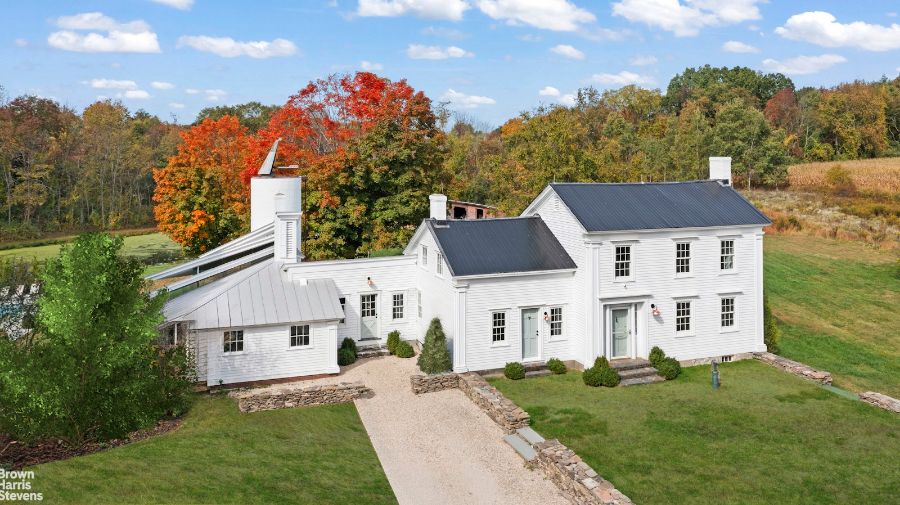By Candice Milano and Malessa Rambarran, Licensed Real Estate Salespeople
Are you at a crossroads, debating whether to take the plunge into homeownership or continue renting? It's a common dilemma many individuals face, and the decision can significantly impact your financial future and lifestyle. In this blog post, we'll delve into the benefits of buying versus renting and help you determine when it makes sense to buy.
Pros of Buying:
- Building Equity: When you buy a home, you're investing in your future. Each mortgage payment you make helps build equity in your property, unlike renting, where your payments only benefit the landlord.
- Stability and Control: Owning a home provides stability and control over your living situation. You're not subject to the uncertainties of rental agreements or the whims of landlords. Plus, you have the freedom to make modifications to your home and create a space that truly reflects your personality and lifestyle.
- Tax Benefits: Homeownership comes with several tax advantages, including deductions for mortgage interest and property taxes. These deductions can lead to significant savings come tax time, providing additional financial incentives for buying a home.
- Potential Rental Income: Homeownership opens up the possibility of generating rental income if you have extra space, such as a basement apartment or a separate dwelling unit. Renting out a portion of your property can help offset mortgage costs and contribute to your overall financial stability.
- Stable Housing Costs: Unlike renting, where landlords can increase rent prices annually, homeowners with fixed-rate mortgages enjoy stable housing costs over the long term. Knowing that your mortgage payments will remain consistent provides peace of mind and better budgeting control.
Cons of Buying:
- Upfront Costs: Buying a home typically requires a significant upfront investment, including a down payment, closing costs, and other expenses like home inspections and repairs. These costs can be prohibitive for some individuals, making renting a more accessible option in the short term.
- Maintenance Responsibility: As a homeowner, you're responsible for the maintenance and upkeep of your property. This includes repairs, landscaping, and other ongoing tasks. Renting, on the other hand, often shifts this responsibility to the landlord, providing renters with greater convenience and peace of mind.
- Market Fluctuations: Real estate markets can be unpredictable, and home values may fluctuate over time. While homeownership can be a valuable long-term investment, there's always a risk of market downturns that could impact the value of your property.
- Property Taxes and Insurance: Homeowners are responsible for paying property taxes and homeowners insurance, which can be significant ongoing expenses. Property tax rates can vary widely depending on location and property value, while insurance premiums can increase due to factors like property age and location.
Factors to Consider:
- Financial Readiness: Assess your financial situation and determine if you're ready for the financial responsibilities of homeownership. Do you have a stable income, sufficient savings for a down payment, and a good credit score? Consider consulting with a financial advisor to evaluate your readiness to buy a home.
- Long-Term Plans: Think about your long-term plans and whether they align with homeownership. Are you ready to settle down in a particular area for the foreseeable future, or do you anticipate job changes or lifestyle shifts that may require flexibility? Are you looking for a starter home, or do you need space to accommodate a growing family? Consider how buying a home fits into your overall life goals and aspirations.
- Homeownership Readiness: Reflect on your readiness for homeownership and the responsibilities that come with it. Are you prepared to handle maintenance tasks, repairs, and upkeep? Homeownership requires time, effort, and financial resources to maintain your property's value and functionality, so it's crucial to be realistic about your ability and willingness to take on these responsibilities.
- Resale Potential: Consider the resale potential of the homes you're considering purchasing. Look for properties with desirable features, good location, and potential for appreciation over time. Assess the local housing market and historical sales data to gauge the resale potential of your prospective home and make a sound investment decision.
- Market Conditions: Keep an eye on local real estate market conditions. Are home prices on the rise, or are they relatively stable? Low mortgage interest rates and favorable market conditions can make buying more appealing. However, it's essential to consider both short-term and long-term market trends before making a decision.
The decision to rent or buy a home is a significant one that requires careful consideration of your financial situation, lifestyle preferences, and long-term goals. While buying offers numerous benefits, including building equity, stability, and tax advantages, it's essential to weigh the pros and cons and assess your readiness for homeownership. By evaluating these factors and consulting with a trusted real estate professional, you can make an informed decision that aligns with your needs and aspirations.
For more insights into this topic, check out Episode 109 of The Build Up Podcast below for Candice and Malessa’s informative episode with Alecko Eskandarian, former pro soccer player and real estate investor.

